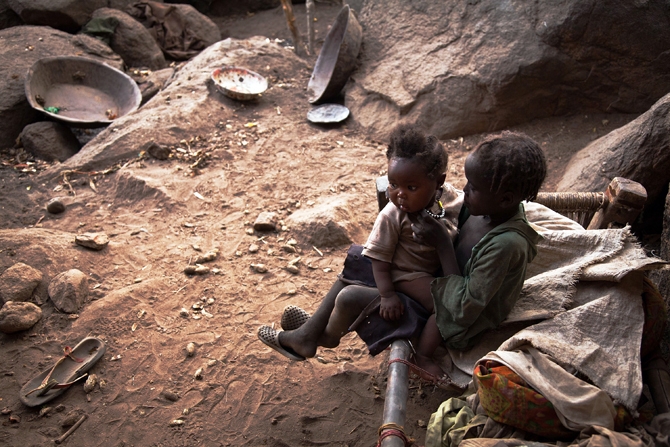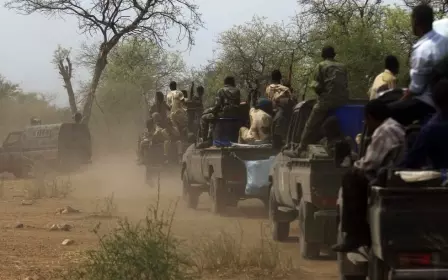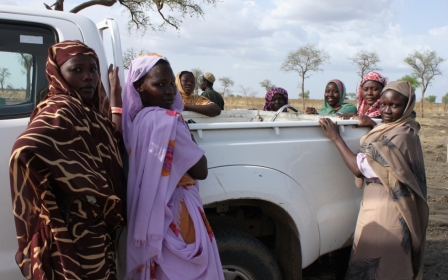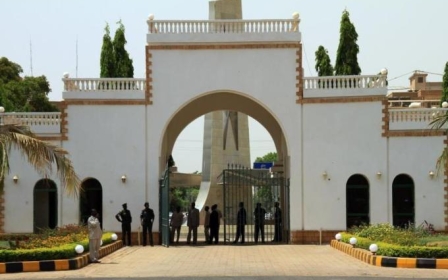MSF leaves Sudan's conflict zones amid 'unacceptable' security situation

Doctors Without Borders (MSF), a charity that provides medical aid in war-torn areas, announced on Thursday its withdrawal from two conflict-hit Sudanese states, saying the government had made it impossible to provide help.
"Because of the multiple denials of access, obstructions and blockages from the Sudanese authorities, the Brussels-based section of MSF has been forced to leave Sudan," it said.
Two other MSF branches will continue to operate in Sudan, but the Brussels-based wing of the charity was the only one working in Blue Nile and South Kordofan, two of the areas hardest hit by an ongoing war between ethnic minority rebels and government forces.
MSF is known for working in the world’s most dangerous conflict zones, maintaining a presence inside war-torn Syria.
However, a spokesperson for the group told Middle East Eye last week that the security situation in Sudan had become “unacceptable”.
The comments came after the group said that a government plane had bombed one of their hospitals in South Kordofan, where the deteriorating humanitarian situation has forced some civilians to seek refuge over the border in war-torn South Sudan.
The hospital was located in the rebel-held village of Frandala. But according to a spokesperson for the group, it was not near a military base.
“Authorities in Khartoum knew the location of the hospital – it is in a civilian area."
The group warned that the reported attack was “a deliberate and targeted bombing of a civilian hospital structure, and part of a strategy to terrorise the community."
Announcing its decision to withdraw from much of its work in Sudan’s conflict-ridden areas, MSF said the government had made it “systematically impossible to provide medical care” in areas where it is desperately needed."
“Our project in East Darfur has been completely blocked since 2012 when our hospital and mobile clinics were stopped,” Bart Janssens, a director of operations for MSF in Brussels, told MEE.
“Our team was arrested briefly in 2012, and since then we have been unable to reopen the project."
Janssens said that MSF had also been blocked from stepping up aid to Abu Sharif Camp, a tented settlement for people forced to flee by the decades-long conflict in Sudan’s impoverished region of Darfur.
“The situation there is really bad – there is a serious lack of water, and even a Hepatitis E epidemic. Despite numerous demands, we have never got permission to send more people to the area.
“We have near-zero access to many conflict-affected areas in Sudan, where the humanitarian situation is catastrophic – because of that we have taken the difficult decision to leave the country.
“The authorities have made it very clear that they don’t want international organisations to work in the areas affected by conflict. It’s an old story, and one that has affected many other agencies.”
Foreign groups working in the capital have also faced challenges - the head of a UN agency who worked in Khartoum was expelled from Sudan last year over allegations that she had been interfering in "domestic affairs".
Despite withdrawing from areas ravaged by conflict, MSF will maintain a limited presence in some parts of Darfur and the capital Khartoum, which is home to thousands of internally displaced people who have fled from conflict-ridden parts of the country.
However, the charity warns that, in states like South Kordofan and Blue Nile where war is still raging, healthcare provision for the civilian population will be virtually non-existent after MSF’s withdrawal.
“It’s really a very poor situation. There are now very few organisations with access to the conflict areas. It’s extremely challenging for anybody to work in Sudan now."
New MEE newsletter: Jerusalem Dispatch
Sign up to get the latest insights and analysis on Israel-Palestine, alongside Turkey Unpacked and other MEE newsletters
Middle East Eye delivers independent and unrivalled coverage and analysis of the Middle East, North Africa and beyond. To learn more about republishing this content and the associated fees, please fill out this form. More about MEE can be found here.




